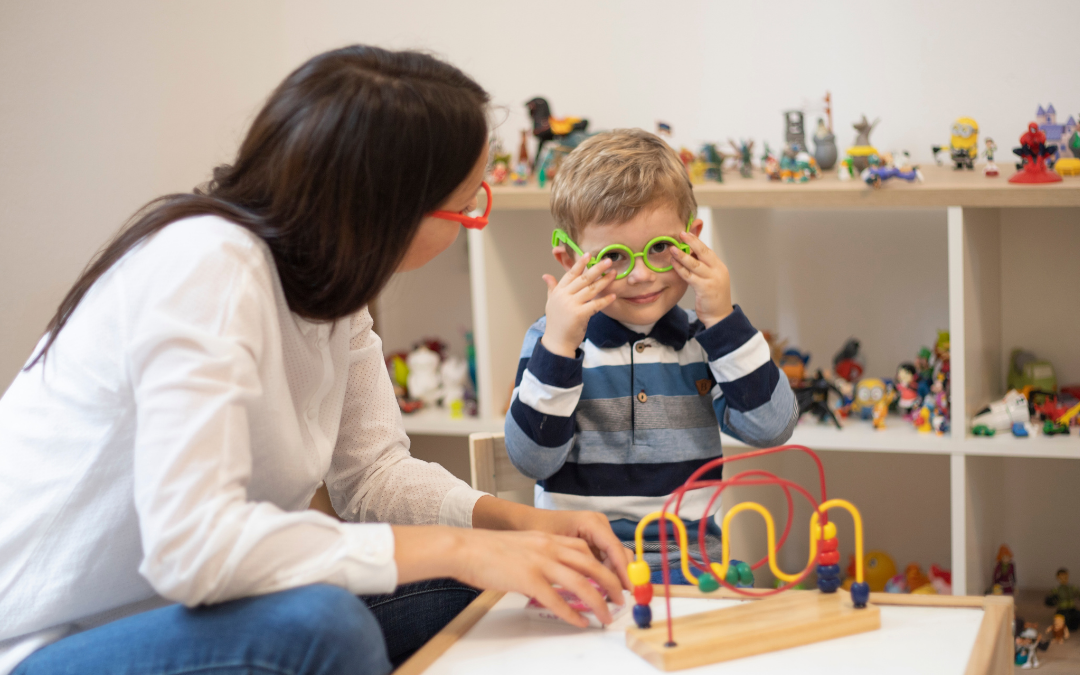All Things Play Therapy
So, what is Play Therapy? In a very quick nutshell of an answer, Play Therapy is a form of child-led psychotherapy for children who are experiencing a range of emotional, social, or behavioural difficulties. As adults, when we have worries or are experiencing a tough time, we usually use words to express ourselves. So, we might talk to a friend, a family member, or even a counsellor or therapist. Most children don’t have the luxury of a fully formed vocabulary to be able to talk about their experiences. They are, however, able to express themselves, and show how they’re feeling using the natural language of play.
Play Therapy gives children a chance to see their troubles from a new perspective, to ask for help if they need it, or to practice new ways of being and interacting with others. For example, a child who struggles to make friends or share, can practice doing those things with me in the play room. A child who’s experienced scary or upsetting events, can revisit those in their play and begin to make sense of them in a safe and healthy way.
Play Therapy is suitable for kids with all kinds of difficulties. This may include anxiety, depression, low self-esteem, lack of confidence, or children who may be reserved or withdrawn and have peer problems. Children who’ve experienced a bereavement, or are coping with the new dynamics of a parent separation. Children experiencing challenging behaviours, attention difficulties, or those who find themselves emotionally dysregulated, as well as children who’ve experienced abuse or trauma.
Play Therapy provides a safe and confidential place for children to work through their problems. It’s important to say that I don’t ask children direct questions, and I don’t give them instructions about what to do, or how to play in the play room, they lead, I follow. So, what sort of things do I have in the play room you might be wondering.
In the Play Therapy room, I have baby dolls, families, and doll’s house furniture, animal families & dinosaurs, pretend food, dishes, money and cash register. Puppets, building blocks, LEGO, doctor’s kit, musical instruments, dress-ups, superhero action figures, sand-trays and miniatures, sensory and messy play items to name a few! Children are free to use any of these, and often unconsciously play out their experiences and feelings that are troubling them, or express and externalise in some way, the things that they’re feeling on the inside. In doing that, children get to experience the enormous relief that comes with expressing difficult thoughts or worries.
As a Play Therapist, I create a warm, accepting, and very importantly, consistent environment where over time the child and I can develop a trusting therapeutic relationship. Sometimes we play together, sometimes we talk, sometimes we don’t talk at all, but always, the child leads, I follow. My job is to listen deeply, and to reflect back to the child any thoughts of feelings that might help them learn about themselves.
Now, all of that sounds very serious! And you know what, sometimes it is! Especially if a child is wrestling with negative feelings, or processing upsetting experiences. However, Play Therapy is often lots of fun! This is also a really important part of the process. It means children get to experience building a healthy, positive, and trustworthy relationship with a new adult. That alone can be hugely significant for children who’ve experienced disappointment, or inconsistency.
Jessie Williams – Play Therapist








Recent Comments